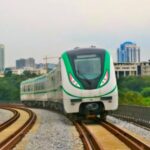
The Federal Government has announced an increase in electricity tariffs for Band A customers, those who enjoy a supply of electricity for approximately 20 hours per day.
At a press briefing held in Abuja on Wednesday, Musliu Oseni, Vice Chairman of the Nigerian Electricity Regulatory Commission (NERC), confirmed that the new tariff will see these customers paying N225 per kilowatt-hour, up from the previous rate of N66.
Oseni noted that Band A customers make up about 15% of Nigeria’s 12 million electricity consumers. He also revealed that several customers previously classified under Band A have been downgraded to Band B due to the failure to meet the required daily electricity supply hours stipulated by the distribution companies.
“We currently have 800 feeders classified under Band A, but this will now be reduced to fewer than 500. As a result, just 17% of feeders will meet Band A criteria, which accounts for only 15% of the total number of electricity customers,” Oseni explained.
Additionally, Oseni shared that the NERC had issued an April supplementary order to enable an allowance of 235 kilowatt-hours per customer, ensuring that the tariff adjustment would not affect those in other customer bands.
In related developments, Bloomberg reported that electricity companies will also be allowed to raise prices for urban consumers to N200 ($0.15) per kilowatt-hour from the previous N68, a move intended to attract new investments and reduce the approximately $2.3 billion spent annually on tariff subsidies.
The report also noted an increase in the price of natural gas to power, following the announcement by the Nigerian Midstream and Downstream Petroleum Regulatory Authority (NMDPRA). This hike comes on the heels of a major power outage, which saw the national grid collapse for the second time in the year, leaving the country in darkness. On March 28, 2024, the grid’s collapse led to a drop from 2,984 megawatts (MW) to zero in just one hour, causing a total shutdown of all 21 plants connected to the grid.
The Abuja Electricity Distribution Company (AEDC) responded to the outage, apologizing for the disruption and confirming that the power failure was due to the national grid collapse. They assured consumers that all efforts were being made to restore normal power supply.
Furthermore, the Energy Progress Report 2022, released by Tracking SDG 7, revealed that Nigeria has the lowest electricity access globally, with an estimated 92 million Nigerians still lacking access to power.


